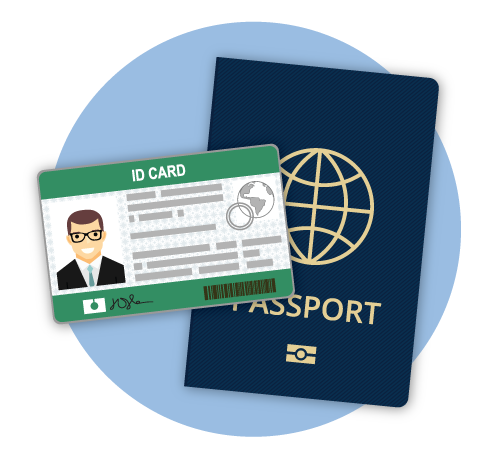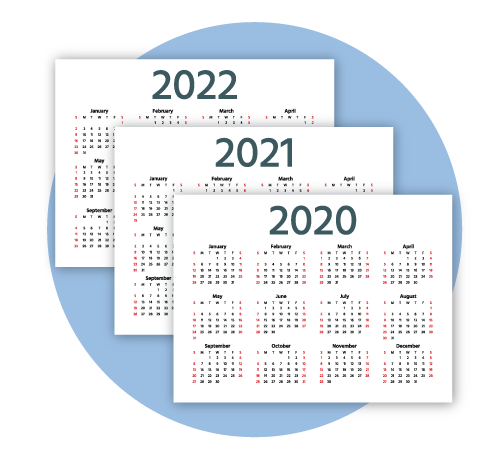Contact Us : 800.874.5346 International: +1 352.375.0772
To earn the Certified Internal Auditor certification, you have to meet the requirements set by The Insitute of Internal Auditors (The IIA). These requirements are known as the Four E’s: Education, Ethics, Examination, and Experience. All four requirements must be completed within a three-year eligibility period in the proper order. The IIA requires candidates to satisfy the education and ethics requirements before completing the examination requirement. You may complete the experience requirement at any time, but many candidates choose to pass the CIA exam first.
The first qualification for becoming a CIA is fulfilling the education requirement. The IIA’s requirements include a range of potential educational backgrounds for CIA candidates. To satisfy the education requirements and be approved into the CIA program, a candidate must meet at least one of the following criteria:
|
CIA Education Requirement |
|
|---|---|
| Master’s Degree (or equivalent) | |
| Bachelor’s Degree (or equivalent) | |
| Active Internal Audit Practitioner designation holder | |
| Experience* | |
*High School Diploma, Associate’s Degree, GCE, A-Level, or equivalent.
If your education is a High School Diploma, Associate’s Degree, GCE, A-Level , or their equivalent, you also have must have five years of experience in internal audit or equivalent topics to be approved into the CIA program. Students in their final year of school can take their CIA exams, but they will not officially hold the CIA certification until they finish their degree and meet all other program requirements.
The IIA holds CIA candidates to high moral and professional standards outlined in its Code of Ethics. To become a CIA, you must agree to abide by this Code of Ethics.
Passing the CIA examination is one of the certification’s most demanding requirements. The CIA exam contains three parts, hundreds of questions, and hours of testing time, all of which are detailed in the table below.
| Exam Part | Title | Number of Questions | Testing Time |
| Part 1 | Essentials of Internal Auditing | 125 multiple-choice | 2.5 hours |
| Part 2 | Practice of Internal Auditing | 100 multiple-choice | 2 hours |
| Part 3 | Business Knowledge for Internal Auditing | 100 multiple-choice | 2 hours |
| Total | 325 questions | 6.5 hours | |
To take the CIA exam, you must:
The final major requirement you must satisfy to become a CIA is the experience requirement, which involves working in internal auditing or its equivalent for a certain number of years. The amount of work experience you need depends on your education level.
You can apply for, sit, and pass the CIA exam before fulfilling the experience requirement, but you will not be certified as a CIA until you meet this requirement. Additionally, you must complete this requirement within your 3-year program eligibility period.
The IIA allows work experience to be in:
| CIA Experience Requirement | |
|---|---|
| Educational Level | Work Experience Required* |
| Master’s degree (or equivalent) | 1 year |
| Bachelor’s degree (or equivalent) | 2 years |
| Active Internal Audit Practitioner designation holder | 5 years |
*Internal Audit experience or equivalent.
There are a few other obligations you must fulfill to earn the CIA. However, these requirements don’t call for as much time or effort on your part.

Before you can be approved into the CIA certification program, you must submit proof of identification. The IIA only accepts current and valid identification in one of the following forms:

Like many professional certification exams, the CIA exam is non-disclosed. Therefore, entrance into the CIA program depends in part on your agreeing to keep the contents of the exam confidential. You are required to sign a non-disclosure agreement at your testing appointment before you will be allowed to take the exam. You will only ever be allowed to discuss the exam content with The IIA’s Certification Department. Disclosing exam information under any other circumstances is a Code of Ethics breach that could result in program disqualification.

Once The IIA officially accepts you into the CIA program, you have three years to finish the program by completing every eligibility requirement discussed above. If you do not become certified in your 3-year window, your program eligibility will expire, you will have to reapply to the program, and you must retake any exam parts you passed in your previous eligibility period.
You can avoid these consequences by applying for an eligibility extension. The IIA allows one-time program eligibility extensions and hardship extensions.
Each of these extensions includes its own procedures and fees, which you can learn more about in The IIA’s Certification Candidate Handbook Opens in new window.
To maintain your CIA status, you must earn 40 hours of Continuing Professional Education (CPE) with at least two hours of ethics each year. This requirement ensures that your knowledge and skills stay current with the needs and demands of the internal audit field.
In some countries, The IIA affiliates administer the CIA exam, and the certification processes, pricing, and taxes may vary. For example, CIA candidates residing in South Africa and the United Kingdom/Ireland must be members of The IIA branches within their respective countries.
According to the Certification Candidate Handbook Opens in new window, if you live in one of the countries listed below, you’ll need to refer to your local IIA Institute website or contact your local representative to discover the specifics of your CIA journey.

If you’re already a member of the Association of Chartered Certified Accountants (ACCA) or a Certified Public Accountant (CPA), we’ve got great news! You may be exempt from the CIA education and experience requirements.
The Professional Certification Board (PCB) has determined that the experience requirements for ACCA members and the education requirement for U.S. CPAs meet and/or exceed these requirements for the CIA program. Therefore, the PCB has approved work experience and education exemptions for qualified ACCA members and education exemptions for U.S. CPAs.
To be considered for these exemptions, complete the appropriate fields on the CIA application. The status of your CIA application will be pending while certification administrators confirm that your membership or license is active. But even if you have to wait a little longer for CIA program approval, you won’t have to wait as long for CIA certification thanks to these exemptions!